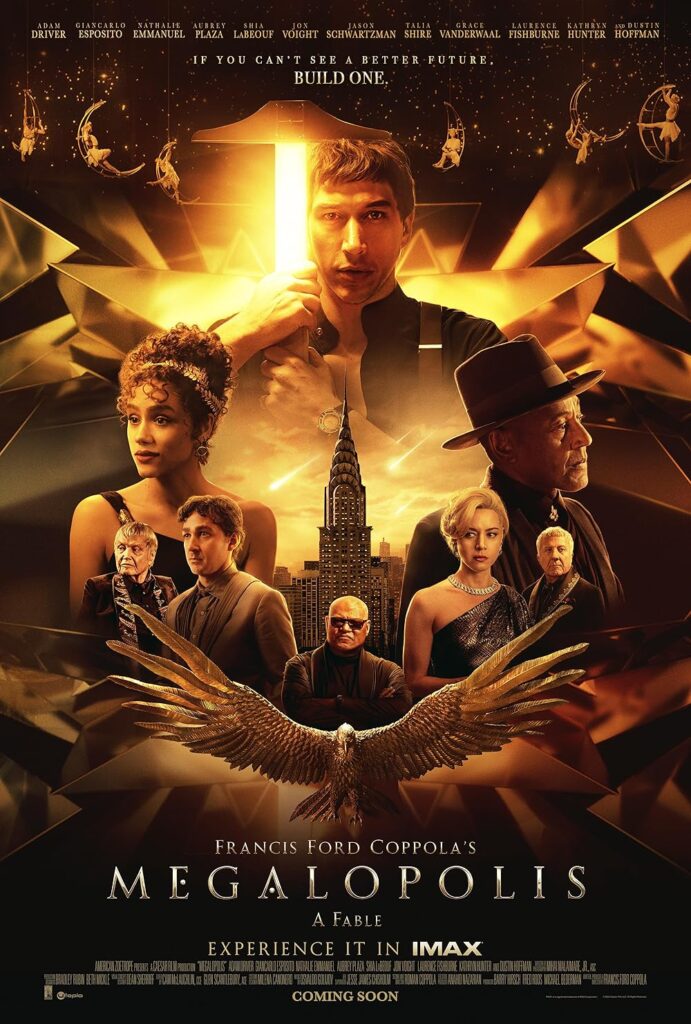September, 27th, 2024
To truly grasp the essence of Francis Ford Coppola as he undertakes his latest venture, “Megalopolis,” begin by cutting your own hair—a symbolic act of taking on a task best left to others, much like directing a film of grandiose vision. Consider the $120 million Coppola ignited from his own pocket to fund this project after decades of studio rejections despite his storied successes with “The Godfather” and “Apocalypse Now.” Regardless of how history remembers this self-funded spectacle, recouping the investment seems improbable.
Yet, Coppola likely harbors no regrets. His film, an operatic and somewhat naive epic, is undeniably his own creation.
The film opens with a scene of Adam Driver perched atop the Chrysler Building, the cityscape of New York, now rebranded as New Rome, shimmering below. Driver portrays Cesar Catilina, a visionary urban planner whose grand designs are set against a backdrop rich with Roman decadence and impending doom.
Laurence Fishburne’s voiceover draws a parallel between the American republic and ancient Rome, emphasizing the theme overtly. In “Megalopolis,” Driver’s character ambitiously plans to transform Manhattan into a utopian city, contending with obstacles posed by lesser beings. The cast includes characters like a wayward cousin (Shia LaBeouf), an unruly reporter (Aubrey Plaza), and a bureaucratic mayor (Giancarlo Esposito), along with his adventurous daughter (Nathalie Emmanuel). Veterans like Jon Voight and Dustin Hoffman make appearances, hinting at earlier considerations for the lead role.
Coppola’s staging oscillates between lavish and frugal as the budget fluctuates. The narrative, steeped in sci-fi melodrama, explores themes of family, lost futures, and a filmmaker’s love for his protagonist—mirroring Coppola’s own experiences of visionary resistance.
Catilina’s struggle is with naysayers, a challenge Coppola sidesteps by embracing full creative control—a decision that proves to be both a blessing and a curse. While aiming for the grandeur of a silent film through visual spectacle and dramatic intensity, the film’s dialogue often falters, ranging from compelling to cumbersome.
Despite its flaws, “Megalopolis” intrigues with its silent film-era aesthetics, though the film is anything but silent. Missteps in dialogue and narrative excess are evident, as Coppola’s discernment falters, trimming crucial subplots and scenes rather haphazardly. The film’s dated sexual politics further complicate its reception.
Amid contemporary allusions—likely displeasing Donald Trump and thrilling Elon Musk—Coppola revisits familiar themes of time and power, infused with echoes of his cinematic past.
Though Hollywood may scoff and box office returns might falter, “Megalopolis” poses a fundamental question: What defines true success? Is it the studio executive profiting from a medium they scarcely appreciate, or Coppola himself, who remains spellbound by cinema’s potential, striving to push its boundaries even now?

